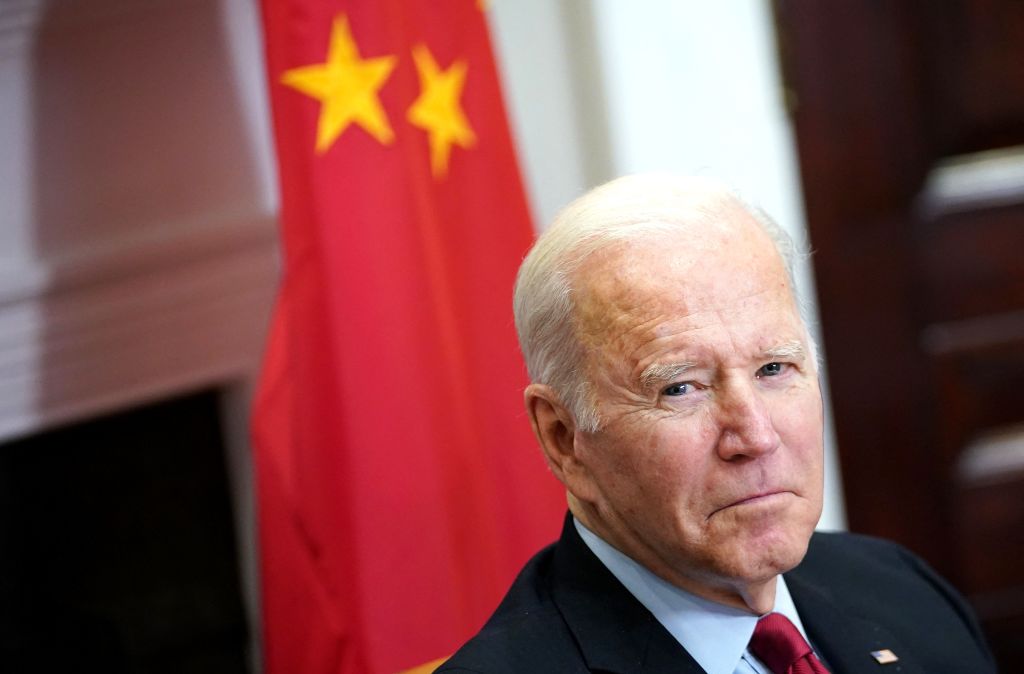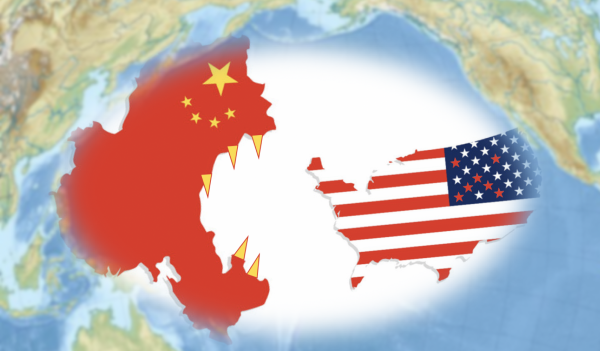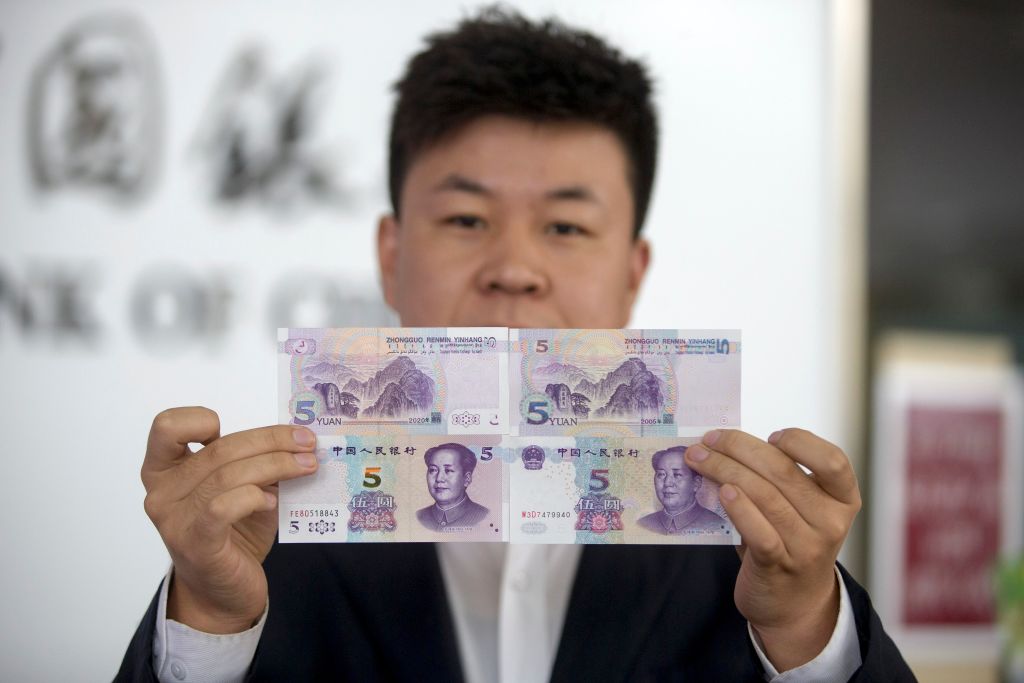Actual policymakers have to do that.
Decoupling from China, Quickly

The Biden Administration sets tough new trade policies against Beijing, but is it too little, too late?
After many years of U.S. universities, businesses, and research centers training Chinese scientists and engineers, and China-U.S. technology transfers in both directions, the Trump administration initiated a process to decouple the countries’ technology sectors. The left widely attacked Donald Trump for doing so. Paradoxically—or hypocritically—the Biden administration has retained most of Trump’s restrictions, and has announced far tougher measures premised on both national security and commercial protection.
This is a broken clock day, on which even the Biden administration gets something right. However, its execution is far from perfect, and its anti-capitalist proclivities taint the results.
The FBI views Chinese counterintelligence and economic espionage as a “grave threat to the economic well-being and democratic values of the United States,” and ranks the problem as “the FBI’s top counterintelligence priority.” The U.S. National Counterintelligence and Security Center issued a warning in February 2021 that China is prioritizing the collection of personal data through legal and illegal channels, including genomic sequencing, and could use that data to blackmail or otherwise compromise Americans.
China’s dominance in the strategic rare-earth minerals used in batteries, computer screens, high-tech weapons, electric vehicles, and other advanced technologies gives China leverage and the potential to strand Western economies. According to China-focused consulting firm Horizon Advisory, China is “not concerned with economic return,” instead seeing its control of advanced technology industries “as a path to win without fighting.” According to a December 2021 report from the Harvard Kennedy School, “beyond becoming a manufacturing powerhouse, China has become a serious competitor in the foundational technologies of the 21st century: artificial intelligence (AI), 5G, quantum information science (QIS), semiconductors, biotechnology, and green energy. In some races, it has already become No. 1. In others, on current trajectories, it will overtake the U.S. within the next decade.”
As I wrote in The American Mind earlier this year, the U.S. manufactures just 19 percent of all chips, while mainland China supplies 35 percent and Taiwan 15 percent. If China invades Taiwan, 50 percent of the world’s chip production will be controlled by China, including 92 percent of the world’s advanced chips. All advanced chips not made in Taiwan are manufactured in South Korea. If China were to invade Taiwan, the U.S. and its allies could lose access to almost all leading-edge chips, about two-thirds of more-mature microprocessors, and half of all dynamic random-access memory (DRAM) chips.
U.S. policies regarding China include defensive measures, like export and import controls, divestment orders, licensing denials, visa bans, and sanctions that seek to block China, as well as offensive measures to build U.S. competitive capabilities, such as the recent CHIPS and Science Act, which allocated $53 billion to support semiconductor manufacturing.
Among myriad other export controls, the International Traffic in Arms Regulations (ITAR) administered by the State Department requires a license for the export of munitions, military electronics, certain cyber capabilities, and sensitive technical data. The Commerce Department places controls on exports that may have military “uses” or “users,” and maintains an “Entity List” of foreign companies that can be barred from importing most U.S.-origin products without first obtaining a license. The Commerce Department also may bar the sale of foreign items that incorporate U.S. content. Other rules permit restrictions on “deemed exports” to foreign citizens resident in the United States.
Investment restrictions, including the Committee on Foreign Investment in the United States (CFIUS) can block foreign investments that “may” threaten to “impair” U.S. national security. In 2018, the Foreign Investment Risk Review Modernization Act broadened CFIUS’ authority to block noncontrolling investments in critical technology, infrastructure, and personal data. In 2020, Trump issued an order prohibiting U.S. persons from purchasing or investing in publicly traded securities of 31 companies identified by the Defense Department as “Communist Chinese military companies.” Pursuant to the Holding Foreign Companies Accountable Act, passed in 2020, publicly-traded Chinese companies that do not permit access to U.S. authorities to confirm their financial statements will be delisted starting in 2023.
There are also sector-specific restrictions on foreign business activities in the United States. Generally, Chinese companies require permission to participate in telecommunications, infrastructure, and power projects. The Department of State may exclude noncitizens from entering the country if there could be “potentially serious adverse foreign policy consequences.” The government also may refuse to purchase goods or services from private enterprises that source or manufacture their products in disfavored countries.
The Trump administration utilized its authority to block or seek to block China from exporting technology, and accessing U.S. technology. For example, it ordered that Hong Kong be treated as China for purposes of U.S. technology restrictions, and designated Huawei and more than 150 of its affiliates as entities that required a license to import chips and chip designs that were in any way based on U.S. technology. Numerous Chinese investments were blocked, including the Grindr dating app and the PatientsLikeMe ocial network, and Trump sought to force a sale of the U.S. operations of TikTok.
The Trump administration also enforced seldom-used provisions of the Trade Act of 1974 to target Chinese practices “that may be harming American intellectual property rights, innovation, or technology development” to impose tariffs of 10 percent to 25 percent on the majority of U.S. imports from China, and denied visas to enter the U.S. to certain employees of Chinese technology companies, including Huawei. Shortly before leaving office, Trump signed an executive order prohibiting the government from purchasing drones whose key hardware, software, or data services come from “adversary countries” like China. As a result of these steps, Chinese foreign direct investment in the United States fell considerably.
According to a recent report from the Carnegie Endowment for International Peace, China has been a growing focus of the Entity List, with the number of China-based companies on the list quadrupling since 2018, growing from 14 percent (130 companies) to 29 percent (532 companies), including many of China’s technology leaders.
Though the Biden administration pulled back from some of Trump’s actions, including its crackdown on potential espionage in American universities, high-profile campaigns against TikTok and Huawei, and trade sanctions unrelated to technology, with few exceptions, the Biden administration has continued, and expanded, Trump policies to contain the Chinese technology sector.
In 2021, Biden issued an executive order extending the trading restrictions in Trump’s 2020 order. Biden’s order prohibits Americans from trading securities of any company designated by the Treasury Department as operating in “the defense and related materiel sector or the surveillance technology sector of the economy of the PRC” and initially designated 59 companies, including Huawei, Hikvision, SenseTime, SMIC, China Telecom, China Unicom, and China Mobile.
Over the last 18 months, the Biden administration has issued company-specific restrictions to leading chip toolmakers, effectively requiring them to halt shipments of equipment to Chinese-owned foundries that manufacture advanced logic chips for artificial intelligence; multilateral controls on advanced semiconductor and gas turbine engine technologies involving Chinese companies; and prohibited the export of military technologies to China.
Most recently, on October 7, the Commerce Department Bureau of Industry and Security (BIS) announced new restrictions on China’s purchase and manufacture of certain high-end chips used in military applications. The export controls “restrict the PRC’s ability to obtain advanced computing chips, develop and maintain supercomputers, and manufacture advanced semiconductors” employed “to produce advanced military systems including weapons of mass destruction; improve the speed and accuracy of its military decision making, planning, and logistics, as well as of its autonomous military systems; and commit human rights abuses.”
The rules cut China off from certain semiconductor chips made anywhere in the world with U.S. technology, software, or machinery. A related rule streamlines the government’s right to place companies on the Entity List if China and that company do not allow BIS to perform due diligence with respect to whether the company complies with U.S. requirements.
The most controversial new rule restricts the ability of U.S. citizens, residents, and American companies to support the development, or production, of chips at certain Chinese semiconductor fabrication facilities unless those persons first secure a license from the BIS. According to the Wall Street Journal, at least 43 Americans hold positions as senior executives for 16 publicly-listed Chinese semiconductor companies on the Entity List, ranging from CEO to vice president. Presumably a substantial number of additional Americans hold positions with privately-held companies for which the data is not publicly available. The rules also could affect Americans working for Chinese companies in the United States, and elsewhere. U.S. persons employed by Chinese companies on the Entity List will have to resign, or renounce their U.S. citizenship or residency status.
Technology experts characterize the rules as the broadest export controls in a decade, according to The New York Times. An analysis by the Center for Strategic and International Studies (CSIS), a Washington D.C.-based think tank, explained that the rules include four interlocking elements that: (i) choke off China’s access to advanced chips; (ii) block China from designing advanced chips by choking off its access to U.S.-made design software; (iii) block China from fabricating advanced chips by choking off its access to U.S.-built semiconductor manufacturing equipment; and (iv) block China from manufacturing semiconductor manufacturing equipment by choking off its access to U.S.-built components.
During a press conference announcing the rules, senior U.S. officials admitted that Samsung and other South Korean companies initially will be exempt from many of the new rules, and that the administration had not yet secured promises from any other nations to implement similar measures. This undermines the effectiveness of the plan, and will disproportionately penalize U.S. companies and engineers.
While measures that target Chinese espionage, military capabilities, other national security concerns, or counter unfair trade practices are to be lauded, actions that have as their principal rationale advancing U.S. commercial interests are troubling. The Export Control Reform Act of 2018, explicitly seeks to advance U.S. “leadership in the science, technology, engineering, and manufacturing sectors,” and many analysts believe the latest restrictions are primarily aimed at overcoming Chinese competition.
CSIS analyst Jim Lewis told Reuters the new rules “will set the Chinese back years.” A comprehensive CSIS analysis asserts that “these actions demonstrate an unprecedented degree of U.S. government intervention to not only preserve chokepoint control but also begin a new U.S. policy of actively strangling large segments of the Chinese technology industry—strangling with an intent to kill,” adding, “in weaponizing its dominant chokepoint positions in the global semiconductor value chain, the United States is exercising technological and geopolitical power on an incredible scale.”
The timing of the new rules, less than a month before the election, and before the administration laid the international groundwork necessary to make its plan effective, together with the immediate exemptions for South Korean companies, raises questions regarding whether the administration is serious about the restrictions, or rushed the announcement for political effect, or to ineptly pressure reluctant allies whose support it could not obtain. The possibility the administration is talking tough, but intends a much softer stick, is consistent with its approach to national security.
While the administration should contain China’s threats to peace and stability, and counter its unfair trade practices, abusing presidential power to seek mere commercial gain invites retaliation, including trade wars with China, the EU, and other technology leaders, and smacks of cronyism. That can only harm America’s workers, deprive America of markets, and slow America’s progress. The Biden administration must take care that its weak understanding of economics, and its anti-capitalist, and often emotional inclinations not take America down the wrong path as it evaluates the course and speed of technology decoupling with China.
The American Mind presents a range of perspectives. Views are writers’ own and do not necessarily represent those of The Claremont Institute.
The American Mind is a publication of the Claremont Institute, a non-profit 501(c)(3) organization, dedicated to restoring the principles of the American Founding to their rightful, preeminent authority in our national life. Interested in supporting our work? Gifts to the Claremont Institute are tax-deductible.
Time is pressing to turn our tech Titanic around.
Our elite power brokers have chosen the CCP over us.
Beijing’s centralized planning has created a massive bubble of obligations.




